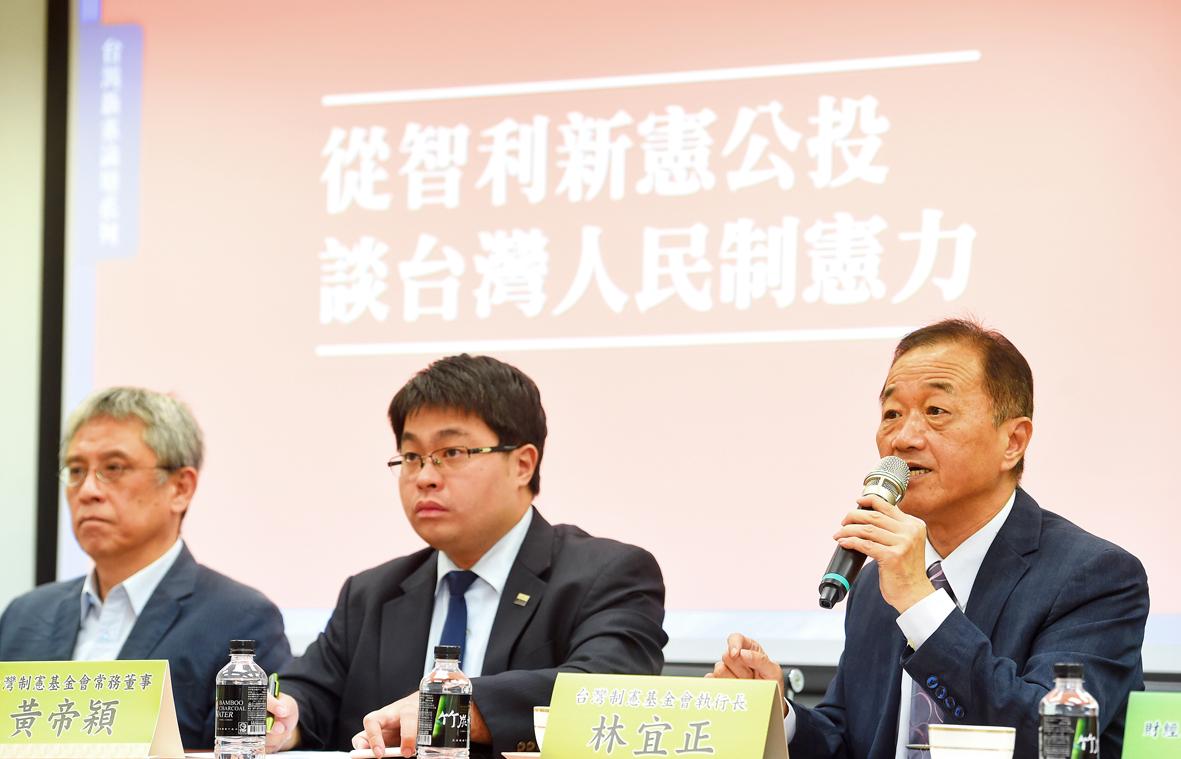Experts at a forum organized by the Taiwan New Constitution Foundation in Taipei yesterday compared constitutional reform efforts in Chile and Taiwan, saying that the Legislative Yuan’s newly formed committee on the issue would “accomplish nothing.”
Chileans on Oct. 25 voted on whether to draft a new constitution to replace the one written during the military dictatorship of General Augusto Pinochet, and if so, which type of government a constitution should stipulate.
More than 78 percent of voters supported drafting a new constitution, while 79 percent preferred a government elected entirely by popular vote, rather than splitting the decision with the legislature.
Chilean society has experienced severe economic inequality exacerbated by the privatization of healthcare, pensions and other services, said Kung Kwo-wei (宮國威), an associate professor and chairman of the Graduate Institute of Latin American Studies at Tamkang University.
Protests broke out in October last year over a 30 peso (US$0.04) increase in public transportation fares in the Chilean capital, Santiago, and the protests, which gradually developed into widespread unrest, reflected the society’s long-standing inequities, Kung said.
The South American nation is run like a large corporation with a government that neglects its social responsibility, he added.
Unlike Chile, a similar referendum proposal brought by the foundation was rejected by the Central Election Commission last month, foundation executive director Lin Yi-cheng (林宜正) said.
The election commissions reasons for rejecting the proposal were outrageous, including its statement that changes to the Constitution could be made through amendments and writing a new one was therefore unnecessary, he said.
The commission also said that only a nonbinding consultative referendum would be possible, but said that the proposal’s wording, “Do you support the president in pushing for the establishment of a new constitution reflecting the reality of Taiwan?” would be confusing for voters, he added.
The threshold for amending the Constitution is also too high, Lin said.
He expects that the Legislative Yuan’s ad hoc Constitutional Amendment Committee, formed last month, would “accomplish nothing.”
Taiwanese are not determined enough, Lin said, adding that talk of amending or drafting a new constitution is empty without first convincing the people of how closely their lives are intertwined with the nation’s premier legal document.
A previous attempt to revise the Constitution during the eighth legislative session failed because of different groups looking to “bind together” different interests, said Lo Cheng-chung (羅承宗), director of the Institute of Financial and Economic Law at Southern Taiwan University of Science and Technology.
For example, support for lowering the voting age to 18 was also tied to support for absentee voting and other proposals, he said.
History would repeat itself, Lo said, but reiterated the importance of drafting a constitution that more accurately reflects the nation’s situation.
Source: Taipei Times - 2020/11/09





















